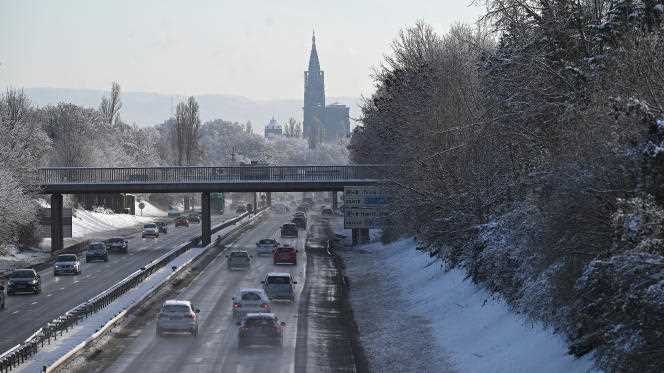Faced with the proliferation of restrictions and charges aimed at businesses in Alsace, around twenty professional organizations in the transport, industry, commerce and agriculture sectors have just formed a collective. They thus hope to influence the decisions of local elected officials who, according to them, jeopardize the health of the local economy, already damaged by the health crisis linked to Covid-19 and the disorganization of the markets caused by the war in Ukraine. .
In the line of sight, the will of the European Collectivity of Alsace (CEA) to implement a heavy goods vehicle tax from 2025. This is in addition to the establishment of a low-emissions zone on the the entire territory of the Eurometropolis of Strasbourg, with the prospect of a diesel ban from 2028. In the shorter term, it is the latter’s decision to quadruple its property tax rate (from 1.15% at 4.6%) which set fire to the powder.
“There is an accumulation phenomenon. On all these issues, we have elected officials in front of us who consult us, listen to us, but do not hear us. Between the pandemic, recruitment difficulties, the raw materials crisis, the consequences of the war in Ukraine, companies can no longer take it. But we have the feeling that it does not affect them.explains the general delegate of Medef Alsace, Sophie Schwendenmann.
“Clear rules”
The latest example of this growing misunderstanding is the one-page, double-sided summary of the many hours of reflection within the working groups set up to measure the economic impact of the low-emissions zone. “We do not want a multiplication of derogations, but clear rules that allow companies to invest”notes the employers’ union, which has just filed an appeal against the metropolitan decree establishing the ban on diesel in four municipalities from 2028.
The first action of the new collective aims to alert public opinion and elected officials to the cost of the future heavy goods vehicle tax for the territory’s economy. No precise figure has yet been put forward by the CEA, but the National Federation of Road Transport (FNTR), one of the main federations in the sector, has already made its accounts.
“Based on the tax in force in Belgium, a Strasbourg-Mulhouse round trip could cost 57 euros. In total, the cost of Alsatian road transport would increase by 10%; an increase that will have to be passed on, because companies do not have the means to absorb it”says Martine Bensa, general secretary of the FNTR in Bas-Rhin.
You have 9.77% of this article left to read. The following is for subscribers only.
